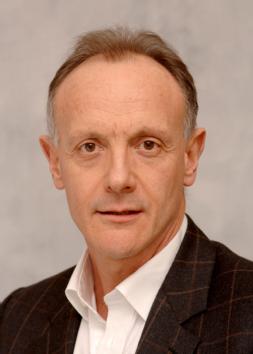Money Makes People Right-Wing and Inegalitarian
 Lottery winners tend to switch towards support for a right-wing political party and to become less egalitarian, according to new research on UK data by Professor Andrew Oswald of the University of Warwick and Professor Nattavudh Powdthavee of the London School of Economic and the Melbourne Institute of Applied Economic and Social Research, University of Melbourne.
Lottery winners tend to switch towards support for a right-wing political party and to become less egalitarian, according to new research on UK data by Professor Andrew Oswald of the University of Warwick and Professor Nattavudh Powdthavee of the London School of Economic and the Melbourne Institute of Applied Economic and Social Research, University of Melbourne.
Their study, published as a new University of Warwick working paper under the title “Does Money Make People Right-Wing and Inegalitarian: A Longitudinal Study of Lottery Wins ”, shows that the larger the win, the more people tilt to the right. The study uses information on thousands of people and on lottery wins up to 200,000 pounds sterling. The authors say it is the first research of its kind.
”, shows that the larger the win, the more people tilt to the right. The study uses information on thousands of people and on lottery wins up to 200,000 pounds sterling. The authors say it is the first research of its kind.
The authors believe their paper has wide implications for how democracy works. Professor Oswald said he had become doubtful of the view that morality was an objective choice.
“In the voting booth, monetary self-interest casts a long shadow, despite people’s protestations that there are intellectual reasons for voting for low tax rates.”
“We are not sure exactly what goes on inside people’s brains”, said Nick Powdthavee, “but it seems that having money causes people to favour conservative right-wing ideas. Humans are creatures of flexible ethics.”
The authors’ paper comments that:
“The causes of people’s political attitudes are largely unknown. One possibility is that individuals’ attitudes towards politics and redistribution are motivated by deeply ethical view.
Our study provides empirical evidence that voting choices are made out of self-interest.”
Using a nationally representative sample of lottery winners in the UK – the British Household Panel Survey – the researchers have been able to explore the observed longitudinal changes in political allegiance of the bigger winners to the smaller winners. The effect is also sizeable. Winning a few thousand pounds in the lottery has an effect on right-wingness that is just under half of completing a good standard of education (i.e. A-levels) at high school.
The lottery winning effect is far stronger for males than females. The authors are not sure why.
The study has nobody who wins millions and millions. “We’d certainly love to be able to track the views of the rare giant winners”, said Professor Oswald, “if any lottery company would like to work with our research team.”
Link to website paper here: www.andrewoswald.com; or
www.powdthavee.co.uk
A non technical version of the paper is also available here
Ends
For further information please contact:
Professor Oswald +44 7876 217717
Professor Powdthavee +61 0406 261 056
Oswald +44 7876 217717
Or
Peter Dunn, Head of Communications
University of Warwick
Tel UK 024 76523708 office 07767 655860 mobile/cell Tel Overseas:
+44 (0)24 76523708 office +44(0)7767 655860 mobile/cell
Email p.j.dunn@warwick.ac.uk
Twitter @peterjdunn
Melbourne: Eoin Hahessy (00 61 432 213 616/ ehahessy@unimelb.edu.au & Ryan Sheales at the Melbourne Institute, University of Melbourne – (+61 3 8344 3845 / ryan.sheales@unimelb.edu.au)
PR 11 PJD 6th February 2014
For more information:
Professor Oswald +44 7876 217717
Professor Powdthavee +61 0406 261 056
Oswald +44 7876 217717
Peter Dunn, email: p.j.dunn@warwick.ac.uk
UK Tel: 024 76 523708 Mobile 07767 655860International +44 24 76 523708 Mobile +44 7767 655860
Useful Links
